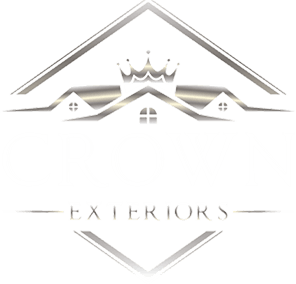If you are in the market for a new roof, the roofing material you choose will make a huge difference in your new roof’s cost, look, performance, maintenance, and durability. Asphalt shingles, wood shakes, composite tile, concrete tile, metal roofs…all of these options vary greatly. Here are the pros and cons of metal roofs when compared to other materials.
Metal Roof Benefits
Metal Roofing Lasts A Long Time
A properly installed quality metal roof should last from 40 to 50 years, sealing out water, surviving high winds, and easily shedding snow. The fact that metal is resistant to fire, mildew, insects, and rot pays off big in longevity.
Metal roofs can last 50 years, depending on climate conditions, workmanship, or unforeseen damage. Most major metal roof manufacturers back their products for 20 to 50 years. Products with painted finishes typically have a 30-year limited warranty. Materials finished with extremely durable resin-based polyvinylidene fluoride (PVDF) coatings tend to have 50-year warranties.
Metal Roofing Is Lightweight
Metal roofing weighs from 1 to 3 pounds per square foot, depending upon the thickness and profile of the material. It is one of the lightest of all roofing materials. Because metal roofing is lightweight, you can save on the engineering and building of the supporting structure. In fact, if you’re building a new house or addition, you can often downsize or reduce the number of roof support members because of metal roofing’s lightweight.
Metal Surfaces Reflect Heat
Metal reflects radiant heat from the sun, minimizing midday heat gain. This reflective characteristic means you save energy needed for air conditioning during the day. Regarding the insulation value of metal roofing in both heat and cold: Though the material itself is low in insulation R-value, metal roofing can be applied over foam insulation that has very high R-values. In addition, many systems utilize a dead-air space between the metal surface and roof deck beneath it to minimize heat transfer, increasing energy efficiency.
Metal Is Great At Shedding Snow & Rain
Metal roofing is practically impervious to rain and snow because of the way the panels interlock and because the surfaces are hard and slippery. In addition, dark tones of metal roofing quickly warm to the sun, encouraging snow melt. Metal roofing is great in snow country because it is fire-resistant, lightweight, and excellent at shedding snow. The panels are applied over dense foam insulation to maintain high R-values. Dark

Metal Roofing Drawbacks
Though metal roofing offers many pluses, a few drawbacks are worthy of mention. For the most part, metal roofing manufacturers have improved their products to address or solve many of these concerns, so it’s important to separate the myths from the real drawbacks.
Avoid Walking On Metal Roofs
You can walk on some metal roofs but not all of them. Whether or not they will dent from foot traffic depends on how the particular product is made and the type of construction supporting it. As you might imagine, metal can be very slippery when wet.
Some painted metal roof finishes can peel, chip, fade, scratch, or chalk, although nearly all premium products are guaranteed for at least 30 years. Walking on some types, particularly those with a granulated-stone surface may cause surface wear. Installers must be careful not to scratch or dent the roofing during installation, and panels must be treated with care. Unlike conventional roofing, some metal shingle systems are installed from the top down, eliminating the need to walk on them.
Installation Is Not Foolproof
A metal roof must be installed correctly. If it isn’t, you can have major problems with condensation beneath it and/or leaking. Some manufacturers or distributors require that their products be installed by professional metal roofing contractors who have been accredited by taking a few factory-taught classes.
Roof panels with exposed fasteners are particularly vulnerable to improper installation. If screws attach through the flat surfaces (rather than the raised ridges), rainwater can run down the roof and seep into the screw holes. For this reason, special resilient washes must seal around screw heads. If you have this type of roof installed, be sure the manufacturer’s instructions are followed precisely.
If you’re ready to see what metal roofing can do for you, contact Twin Cities trusted roofing contractor for an estimate today!



